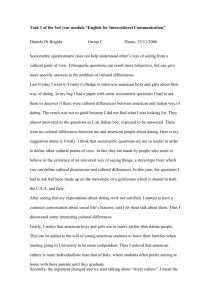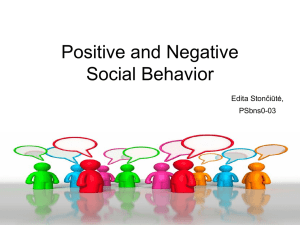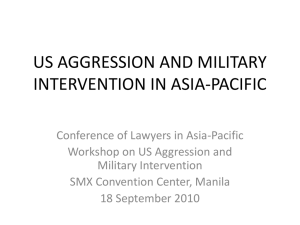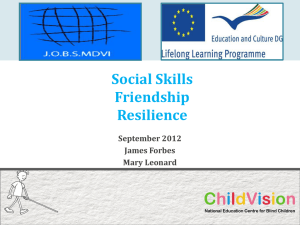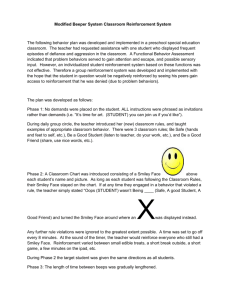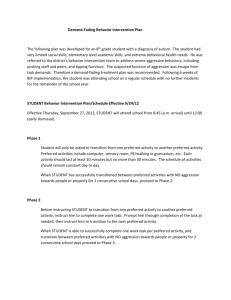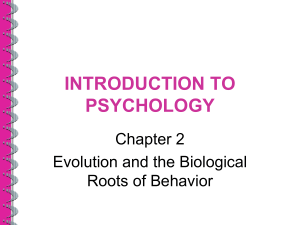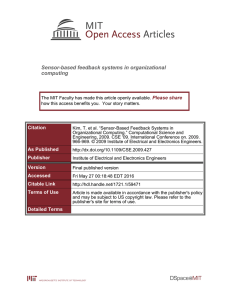preschool disturbance
advertisement
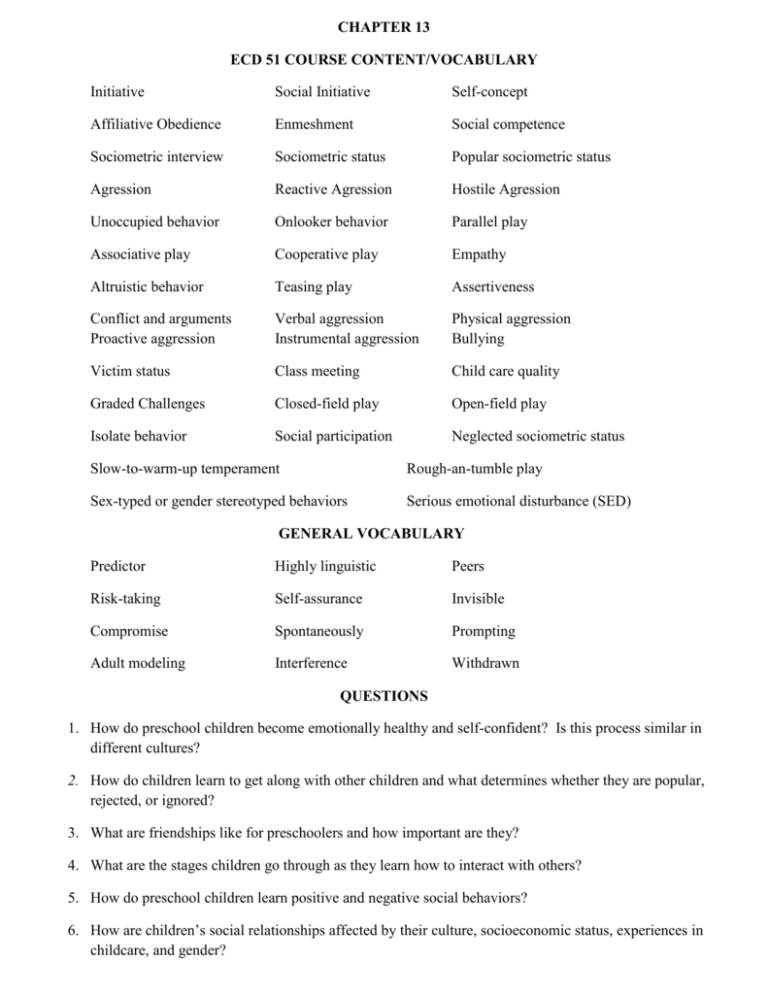
CHAPTER 13 ECD 51 COURSE CONTENT/VOCABULARY Initiative Social Initiative Self-concept Affiliative Obedience Enmeshment Social competence Sociometric interview Sociometric status Popular sociometric status Agression Reactive Agression Hostile Agression Unoccupied behavior Onlooker behavior Parallel play Associative play Cooperative play Empathy Altruistic behavior Teasing play Assertiveness Conflict and arguments Proactive aggression Verbal aggression Instrumental aggression Physical aggression Bullying Victim status Class meeting Child care quality Graded Challenges Closed-field play Open-field play Isolate behavior Social participation Neglected sociometric status Slow-to-warm-up temperament Rough-an-tumble play Sex-typed or gender stereotyped behaviors Serious emotional disturbance (SED) GENERAL VOCABULARY Predictor Highly linguistic Peers Risk-taking Self-assurance Invisible Compromise Spontaneously Prompting Adult modeling Interference Withdrawn QUESTIONS 1. How do preschool children become emotionally healthy and self-confident? Is this process similar in different cultures? 2. How do children learn to get along with other children and what determines whether they are popular, rejected, or ignored? 3. What are friendships like for preschoolers and how important are they? 4. What are the stages children go through as they learn how to interact with others? 5. How do preschool children learn positive and negative social behaviors? 6. How are children’s social relationships affected by their culture, socioeconomic status, experiences in childcare, and gender?
